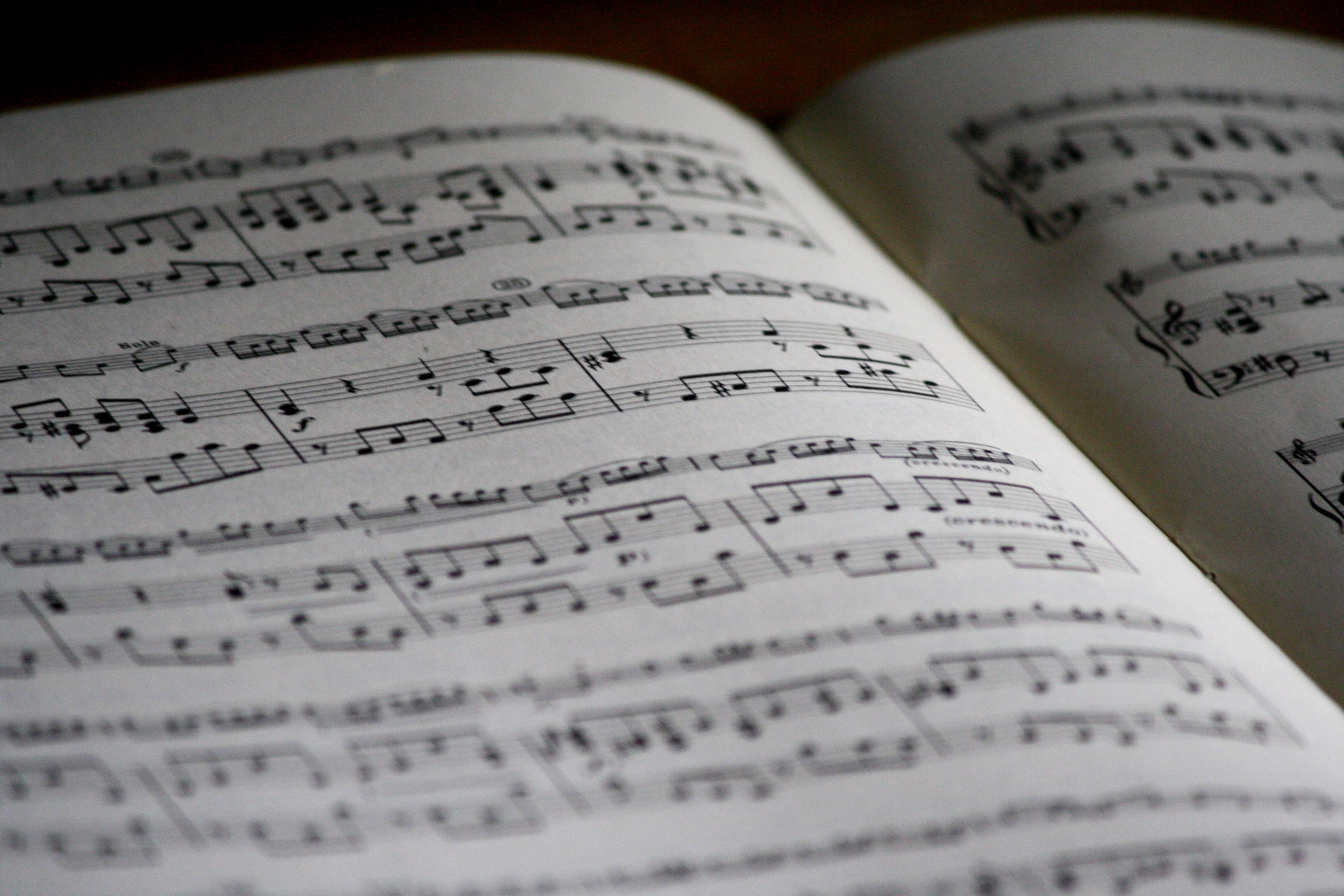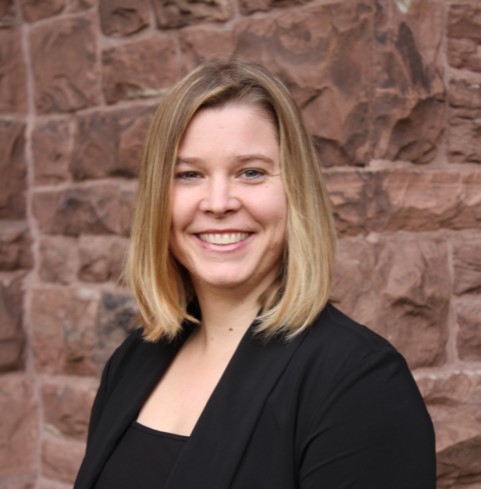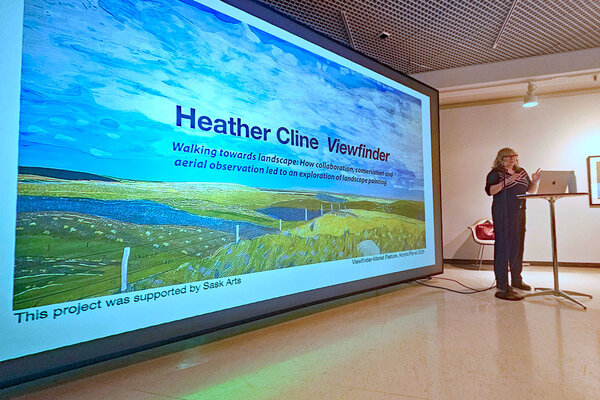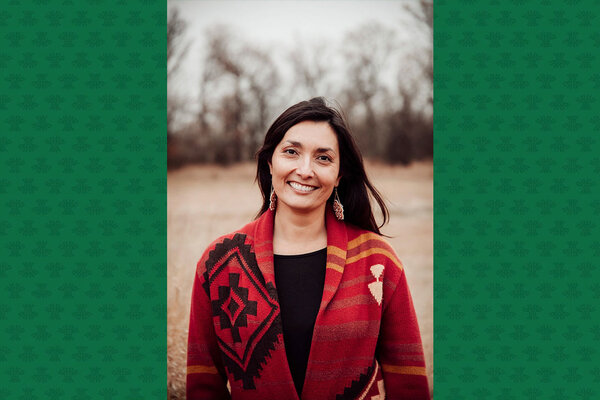
COVID-19 experiences inspire new USask course on music and wellbeing
“As the world searches to heal and rebuild from a global pandemic, music’s critical role will be explored and reinforced in this course," says Dr. Jennifer Lang (PhD)
By Shannon Boklaschuk
A University of Saskatchewan (USask) researcher who studies the connections between music and wellbeing has witnessed firsthand the positive impact that music can have on people’s lives during times of crisis.
Dr. Jennifer Lang (PhD), an associate professor in the Department of Music in USask’s College of Arts and Science, conducts the Greystone Singers choir and teaches choral and music education courses. Throughout the global COVID-19 pandemic, Lang and her colleagues found creative ways to ensure musicians could still safely make music together during a time of physical distancing—including through a virtual performance of “Warrior” by the Greystone Singers as well as via a video recording of “One Voice” by the Greystone Singers Alumni Choir.
.jpg)
During the 2020-21 academic year, when the USask campus closed to the public and classes were taught remotely to help keep students, faculty and staff safe, Lang received emails and testimonials from students who spoke about the significant role music played in their lives during the pandemic, whether it was “connecting them to a greater community—even online—beyond their bedroom walls or serving as an emotional or spiritual outlet.”
“When students are writing to you telling you that ‘choir was the incredible medicine to improve my mental health’ through the year of a global pandemic, that resonated deeply with me about music’s purpose and its positive effects on the human condition, especially when it is being tested,” she said.
These experiences helped inspire a new course that Lang will coordinate and co-teach this winter—MUS 298.3: Music and Wellbeing—that will introduce histories, contexts and theories of music in relation to the human experience. Based on neurological, psychological and biological foundations, students will learn about the power of music and musicking in building identity, community and emotional resilience, and in enhancing spiritual practice.
“The course is completely online which not only can facilitate guest presenters from around the world, but also extends to students taking the course who may not be on our USask campus. The instructors have extensive expertise in music performance, music therapy, educational psychology and music education, which brings critical perspectives to the issues studied and to the interests of the prospective students,” said Lang.
“As the world searches to heal and rebuild from a global pandemic, music’s critical role will be explored and reinforced in this course.”
Another impetus for the new course was the online Music and Wellbeing Conference that the Department of Music hosted in May 2021. Lang served as the lead organizer of the event, which examined the intersections between music and health.
“The conference was inspired by the need this year, in particular, to explore how our current climate of mental and physical uncertainty and unrest called for communities of practice to collaborate with a focus on non-pharmacological and caring interventions for mental, emotional, social and physical wellbeing,” she said.
“The understanding of the role of non-pharmacological solutions in health is paramount to sustaining positive cognitive, psychological and physiological wellbeing in every age and stage of one’s life and through fluctuating uncertainty of local and global socio-cultural situational factors. Music plays a vital role in this, and it is important for today’s students to have an understanding of music in relation to wellbeing.”
Lang’s main area of research is exploring musical agency across the human lifespan. This extends into establishing and directing intergenerational singing programs that connect people living with dementia with young adults. For Lang, “the mental, emotional, psychological, social and physiological benefits experienced by the multiple generations as they engage with music and with each other is incredibly rewarding and affirming.”
“To see how one’s quality of life can be enriched by music right through the final stages of life reinforces the importance of setting the stage and laying the groundwork for lifelong music engagement,” she said.
In addition to her research activities, Lang is also a celebrated educator, having won the University of Saskatchewan Students’ Union (USSU) Teaching Excellence Award in 2020. She said it was important to see how the music students she taught during the pandemic were able “to continue to own their voices and demonstrate the will, ability and capacity to act in and through music at a time when many in the world experience helplessness and hopelessness.” Indeed, scholars have long recognized that music has served as a therapeutic tool since ancient times, and at the core of musicking is the exploration, affirmation and celebration of relationships, she added.
“This is now a critical time to be rediscovering these relationships and reconnecting to each other in and through music after experiencing an extended period of maintaining distance,” said Lang.


